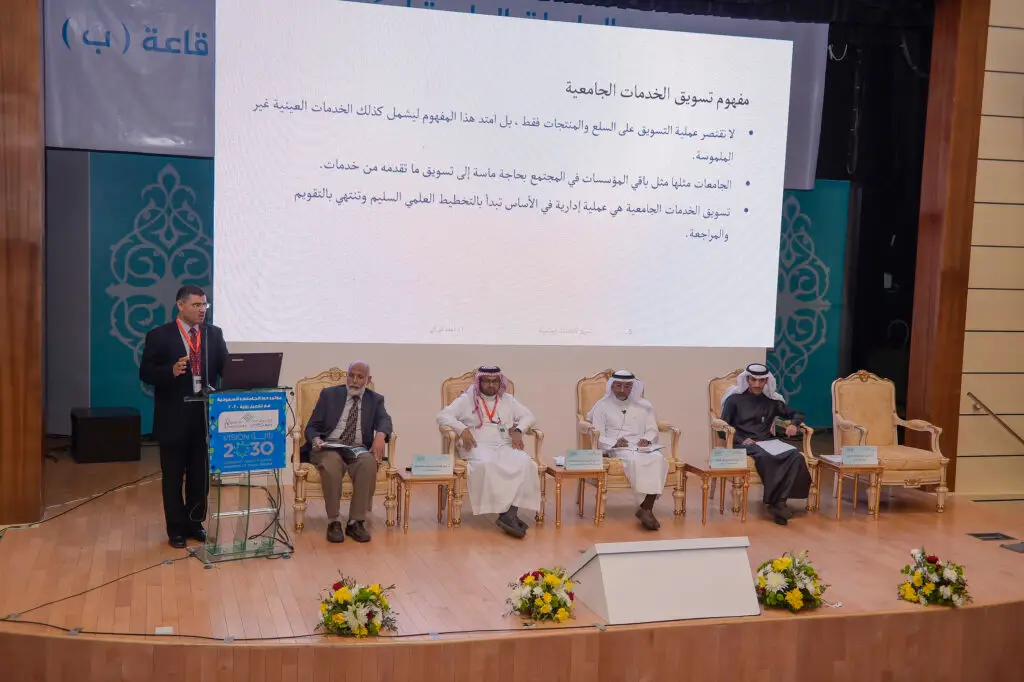"The Role of Saudi Universities in Implementing Vision 2030" conference discusses the commercialization of university services to enhance financial resources for universities
Media and Communication Center:
Participants in the conference "The Role of Saudi Universities in Activating Vision 2030" held at Qassim University during last week, during the scientific sessions, discussed the results of a number of scientific research on marketing university services with the aim of enhancing the financial resources of Saudi universities in light of Vision 2030. During the session chaired by Prof. Dr. Abdulrahman bin Saleh Al-Wasl, Vice President for Postgraduate Studies and Scientific Research at Qassim University, where Dr. Ahmed Abdul Fattah Al-Zaki from King Faisal University presented a proposal for marketing university services, including the premises on which the proposed concept is based, the parties benefiting from it, and the objectives and aspects of the proposed concept.
Dr. Ali bin Yahya Al Salem, a professor at Imam Muhammad bin Saud University, presented a research paper entitled "Developing Proposed Standards for Attracting, Preparing and Training Teachers in the Kingdom in Light of Vision 2030." The researcher came up with a number of recommendations, the most important of which are: Working to activate the proposed normative specifications to develop the recruitment, preparation and training of teachers in the Kingdom of Saudi Arabia in light of Vision 2030, and developing the necessary training and professional programs to implement them, and including the curricula taught in teacher preparation programs and training programs the educational dimensions included in the Kingdom's Vision 2030, the most important of which are: Emphasizing the Kingdom of Saudi Arabia's high leadership position among the countries of the world, highlighting the Kingdom's historical heritage, developing pride in the national identity, emphasizing moderation, justice and dialogue, contributing to building a balanced personality capable of initiative and leadership, emphasizing the preservation of public property, enhancing performance efficiency, and contributing to building future leaders.
Dr. Abdulaziz bin Saeed Mohammed Al-Hajri, a professor at King Khalid University, presented a paper on the future directions of universities in achieving the Kingdom's Vision 2030, in which he reviewed the strategic objectives of education in light of the National Transformation 2020, as well as the objectives of the ten-year development plan and the objectives of the future plan for higher education (AFAC). This resulted in reaching a future vision for KKU in light of the global future trends and building a map for it that includes a brief presentation of each trend, the requirements for its application, and the expected result of its realization.


